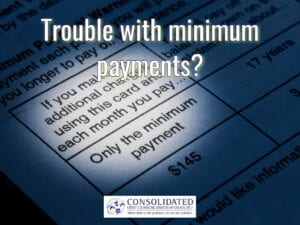On the topic of abuse, many people think about physical or mental abuse. Perhaps even domestic violence. Unfortunately, there are more ways to belittle someone and limit their freedom. One way is through financial abuse. In our modern world, not having access to financial resources can affect one’s ability to make certain decisions. Recognizing financial abuse is the first step to removing yourself from it. In this article, we’ll discuss what financial abuse is and ways to address the situation.
What is financial abuse?
Financial abuse is the continuous process of one person controlling a victim’s ability to access monetary resources. This includes one’s ability to acquire, maintain, and use money, credit, and assets.
Often, financial abuse is overlooked because it’s not as overt as physical or emotional abuse. However, financial abuse can restrict someone’s ability to get out of an already dangerous situation. For example, if someone is a victim of domestic violence and wants to escape, they may struggle to do so without access to money or credit. As a result, the victim may be stuck in an abusive situation with no ability to leave.
Common signs
Financial abuse can be challenging to identify. Like most abuse, it is a continuous pattern. In addition, financial abuse is often coupled with other forms of abuse, like intimate partner violence. If you suspect a loved one is suffering from financial abuse, it’s recommended you increase the amount of time spent with that person. That way, you can begin to look out for any patterns of abuse and attempt to stop the cycle. However, do not put yourself in a dangerous situation.
Below are some common warning signs to look out for:
- Preventing someone from working to earn money for themselves or become educated to find good employment.
- Working or providing care for little to no compensation.
- Forcing someone to sign legal documents they don’t understand, like a prenuptial or cohabitation agreement.
- Restricting access to financial, legal, or psychological advice.
- Spending someone’s money or taking property without permission.
- Using credit cards or debt in someone else’s name, thereby damaging their credit score.
- Withholding someone’s access to economic resources with an intention to control them.
- Forcing a person to change their will or power of attorney.
- Demanding someone sell their assets.
- Criminal activity, such as theft and fraud.
- Signs of other kinds of abuse, like elder abuse, physical abuse, and domestic abuse.
The most vulnerable
Generally speaking, these people are the most vulnerable to financial abuse:
- Older people, especially widows, divorcees, people living alone, or struggling with health issues.
- Unemployed women.
- Stay-at-home mothers caring for their children.
- People who have become isolated due to closeness to another person.
The senior population is particularly vulnerable to financial abuse. It is the most common form of elder abuse in Canada. Normally, it begins after a spouse dies or there is a health crisis. People who are lonely and in poor health are susceptible to elder financial abuse.
Financial abuse is also frequently a part of familial violence. Often, women are fearful to leave an abusive partner if they have children. Financial restrictions make them unsure of how they will provide for their children.
Typically, abusers are usually close to the victims, like a family member, spouse, friend, neighbour, or caregiver. The close connection is often exploited to begin and maintain a pattern of abuse. The closeness can make it challenging for a person to leave an abusive situation.
With all that being said, it’s important to remember not to stereotype. While these tend to be the most common people affected, anyone can be a victim of financial abuse.
What to do if you’re a financial abuse victim
If you believe you’re a victim of abuse, commend yourself for confronting the situation head-on. Realizing a loved one is exploiting you is not an easy realization — the first step is awareness. The next step is to seek help.
It can be challenging to access help with limited economic resources. In addition, your abuser may manipulate you to prevent you from getting assistance. However, to get out of the situation, think of your personal, true experience by tuning out your abuser’s opinion. You can seek help from the following resources:
- Reach out to a friend, family member, or other person you trust for help.
- Access resources offered by communities, charities and other entities, such as the domestic violence hotline and SOS Violence Conjugale.
- Speak to your bank for advice and help to regain control of your finances.
- Ask your doctor or nurse for help.
- Contact local authorities and police.
How to prevent financial abuse
No one wants to be in a position where they’re being financially abused. Here are some tips to avoid becoming a victim:
- Keep your financial information and resources private to maintain financial independence.
- Regularly review your bank statements, credit report, and personal finances.
- Keep a record of the money you give others and whether it’s a loan or a gift.
- Select a power of attorney and appoint them if you find yourself in a situation where you can no longer care for yourself.
- Obtain your own legal and financial advice before signing documents or contracts.
- Consult people you trust before making major financial decisions that involve someone else.
- Be wary of opening and using joint bank accounts. If you choose to open one, it’s wise to keep a personal, separate bank account.
- Maintain relationships with a trusted contact person and others to avoid isolation.
Financial Abuse and You
If you suspect someone you love is a victim of an abusive relationship, offer support where you can. If you’re a victim of financial abuse, know that you are not alone. There are people and communities who are there to help.
Need help getting back on solid financial footing because of a financial abuse situation? Our compassionate and expert credit counsellors can help. Reach out today for a consultation.




